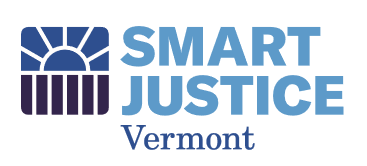Advancing Racial Justice
Our goal is to cut Vermont’s incarcerated population in half, reuniting families, building stronger communities, and saving millions of taxpayer dollars. But achieving that goal would be an empty victory if we did not also confront the racial injustice endemic in Vermont’s criminal justice system.
Systemic racism throughout Vermont, in our communities, our schools, our access to employment, housing and health care, our interactions with law enforcement, and our prosecutorial system are the root of the racial disparities in Vermont’s prisons, where Black men are incarcerated at a higher rate than in any other state.
We strongly urge Vermont’s leaders to act on the Report and Recommendations from the Vermont Attorney General and Human Rights Commission Task Force on Racial Disparities in State Systems to confront systemic racism in Vermont, and to further support the leadership of affected communities in pursuing racial justice.
Data Collection
Vermont’s criminal justice system does not collect or analyze data that would help understand the pronounced racial disparities in Vermont’s incarcerated population. Vermont’s Department of Corrections collects the data that lets us know that the disparities exist, but we don’t have information to understand the turning points in the process that created them.
If we are going to meaningfully address racial bias in Vermont’s justice system, access to data will be essential. That includes data on bail decisions and amounts, charging and plea offers, and information concerning sentencing, probation, furlough, and other outcomes, alongside demographic information like race. Without access to this data, meaningful racial and criminal justice reform will be much harder to achieve.
Racial Bias Training
Like all of us, prosecutors, public defenders, corrections officers, and others in Vermont’s justice system regularly deal with situations in which hidden or unintentional racial biases can play a major role. Ongoing, robust anti-bias training should be mandated for all state officials who work in the criminal justice system.
Fighting Racial Profiling
Thanks to police department data, we know that Black and Latinx drivers in Vermont are stopped and searched at higher rates than white drivers. This is true even though searches of white drivers are more likely to yield contraband.
The ACLU is fighting this practice in court. This year, the Vermont Supreme Court will hear the case of Greg Zullo, an African American man who was pulled over for having a small amount of snow covering the registration sticker on his license plate (something that was not illegal at the time of the stop).
The Vermont State Trooper, citing a smell of burnt marijuana, demanded to search the car. When Mr. Zullo refused, the trooper had the car towed to the police barracks to have it searched there, and Mr. Zullo was forced to walk several miles in the snow without a coat and pay a fee to retrieve it. The search of the car revealed nothing illegal.
Traffic stops like the stop endured by Mr. Zullo are a prime example of how people of color, due to disproportionate scrutiny and interactions with the police, are more likely to become entangled in the criminal justice system, with consequences that could follow them and their families for a lifetime. Court cases like Mr. Zullo’s can force changes in law enforcement practice, helping to better protect the civil rights of people of color.


